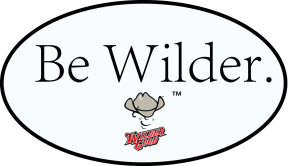Back in the “good old days” of western civilization, once a kid learned to read and write (in English, German, Spanish or whatever) the rest of his formal education would consist of studying Latin, History, philosophers, and religious teachers. Classical Education. None of this stuff was meant to lead him into his career as our secondary and higher education attempts to do today. Life experience, parents, reading, and apprenticeships did that. Instead his education was designed to teach him to think, research, discipline himself, develop ethics and an understanding of the events of history that lead to the current state of the affairs of the world. I do believe that it is still possible for a kid to go through the public school system and get a great education. Some of the elements of a classical education are still there, but without an understanding of the wherefores.
Let’s use the research paper as an example. Most kids are still required to do them in high school and in college. I believe the original intent of the assignment of research papers was not only to make students miserable, but also to develop curiosity and the ability to find the answers to things that puzzle them. It was about learning how to learn.
Yes, many teachers teach to test these days. Unfortunately, even when teachers aren’t teaching to test, most of our students are learning for the test, or memorizing what they need to get a good grade, but failing to grasp concepts and an understanding that what they are learning should be retained and can and should be used “in real life.” (To me, this explains how we ended up with President O’Bama.)
I’m thankful that my mother bought a set of encyclopedias for our home when we were kids. I was fortunate enough to have parents and teachers who said, “Look it up,” when I had questions about various things. This is where the previous post about canola oil ties in. How many people not only don’t know where canola oil comes from, but have had no curiosity about it? How many people get their news from Conan O’Brian or Letterman’s monologue? Do you know why a Ponzi scheme is called a Ponzi scheme?
Relative to the whole of human history, compulsory education is still a pretty new idea. While I do believe that every child in our society should be given the opportunity to learn to read and write, beyond that I say let each family give direction and let the individual decide what he will pursue. But what I say doesn’t usually affect TEA or my local ISD. So if we must have compulsory education and continue to tell everyone that he should go to college, I’d like to see our kids learning more than multiculturalmumbojumbo, completely filling bubbles with #2 lead, and self-esteem. I’d like to see them learning how to learn. Let’s teach them to be teachable.
I’d like comments from those of you who are teachers or teachers of teachers. You are the pros. I just drive trains and have opinions.
Subscribe to:
Post Comments (Atom)


3 comments:
Good points! I'd like to hear what the teachers have to say also. Now that Ally's about to get into the school system, stuff like this is weighing on me.
Justin,
This is great. It's why I am teaching (taught, I should say, now I'm acting as a dean) at a classical school. It is the only 'answer' I have found in education that actually equips our children with the tools to think.
An economic forecasting company up in Idaho hired some classically educated graduates on a 'whim' a few years back. They had no 'formal' training in 'subjects' like economics. Now, the owner's company consists of 20 out of 27 employees with classical backgrounds! He claims that they can approach any problem, situation, etc. and see what is needed.
The thing that I also appreciate about classical ed is that it's not for simply the 'advanced'. Perfectly average and below-average students can and do succeed.
Yeah, but do they 'learn' anything? I hear this question a lot. Well, just as an example, my students from last year (1st and 2nd graders) can tell you the 32 major historical events - in order - from ancient Greek and Roman history from 2200 BC to 476 AD. Not only that, they can recount the relationship each event had on the next.
Of course, one very important thing that classical education must have is the family. The family must be the #1 educator of the child. This is so missing in our world today, but what a beautiful difference it makes.
Thank you for sharing this, Justin. It is a privilege to teach classically and I'm so thankful I know about it now.
Celeste
FYI-My comment is coming. It's all in my head, I just haven't taken the time to get it all written.
Sheila
Post a Comment